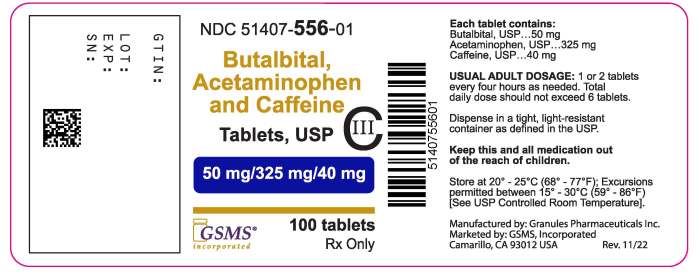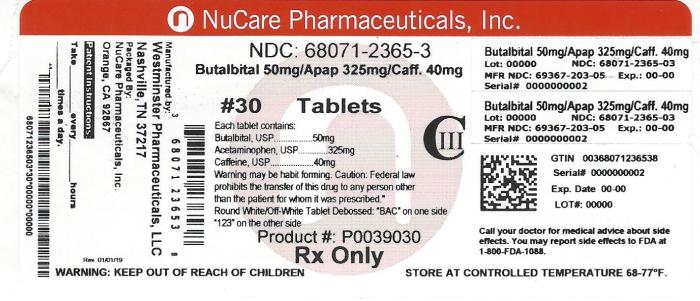Butalbital acetaminophen caffeine, a common combination medication, is a potent headache reliever that works by combining the effects of three active ingredients. Butalbital, a barbiturate, provides muscle relaxation and reduces pain. Acetaminophen, a non-narcotic analgesic, effectively tackles mild to moderate pain. Caffeine, a stimulant, enhances the effects of the other two components and promotes alertness.
This unique combination is designed to address various types of headaches, including tension headaches, migraines, and cluster headaches. Its effectiveness lies in the synergistic action of the three ingredients, providing comprehensive pain relief and addressing associated symptoms like muscle tension and fatigue.
Comparison to Other Headache Medications: Butalbital Acetaminophen Caffeine

Butalbital acetaminophen caffeine (BAC) is a combination medication used to treat tension headaches and migraines. It is often prescribed when other headache medications, such as over-the-counter pain relievers, are not effective. However, BAC is a potent medication with potential side effects and risks, and it should only be used under the guidance of a healthcare professional. This section will compare and contrast BAC with other commonly prescribed headache medications, highlighting their respective strengths, weaknesses, and potential advantages or disadvantages.
Comparison of Headache Medications
The following table compares BAC with other commonly prescribed headache medications.
| Medication | Strengths | Weaknesses | Potential Advantages | Potential Disadvantages |
|---|---|---|---|---|
| Butalbital Acetaminophen Caffeine (BAC) | Effective for tension headaches and migraines, provides relief from pain and associated symptoms | Potentially addictive, can cause drowsiness and dizziness, may interact with other medications, not suitable for long-term use | Provides quick relief from severe headaches | Risk of dependence, potential for abuse, side effects, interactions with other medications |
| Triptans (Sumatriptan, Zolmitriptan, etc.) | Effective for migraine headaches, specifically for the throbbing pain and nausea | Can cause dizziness, drowsiness, and nausea, may not be effective for all migraine sufferers, not recommended for people with certain medical conditions | Targeted relief for migraine headaches | Side effects, potential for interactions with other medications, not suitable for everyone |
| Ergotamines (Ergotamine tartrate, Dihydroergotamine) | Effective for migraine headaches, particularly for those resistant to other medications | Can cause nausea, vomiting, and dizziness, not recommended for people with certain medical conditions, can interact with other medications | Effective for severe migraines, can be used for preventive therapy | Side effects, potential for interactions with other medications, not suitable for everyone |
| NSAIDs (Ibuprofen, Naproxen) | Effective for mild to moderate headaches, readily available over-the-counter, generally safe for short-term use | Can cause stomach upset and gastrointestinal bleeding, not recommended for people with certain medical conditions | Widely available, generally safe for short-term use | Gastrointestinal side effects, not suitable for everyone |
Patient Education and Counseling
This leaflet provides important information about butalbital-acetaminophen-caffeine, a combination medication used to treat headaches. Please read this information carefully and discuss any questions you may have with your doctor or pharmacist.
Understanding Your Medication
Butalbital-acetaminophen-caffeine is a combination medication that contains three active ingredients: butalbital, acetaminophen, and caffeine. Butalbital is a barbiturate-like drug that helps to relax muscles and reduce pain. Acetaminophen is a pain reliever that works by reducing fever. Caffeine is a stimulant that helps to increase alertness and reduce drowsiness.
How to Take Your Medication
- Take this medication exactly as prescribed by your doctor.
- Do not take more or less of it, or take it more often than prescribed.
- Swallow the tablets whole with a full glass of water.
- You can take this medication with or without food.
Possible Side Effects
Like all medications, butalbital-acetaminophen-caffeine can cause side effects. Some common side effects include:
- Drowsiness
- Dizziness
- Nausea
- Constipation
- Insomnia
- Restlessness
Interactions
It is important to tell your doctor about all the medications you are taking, including over-the-counter medications, vitamins, and herbal supplements. Butalbital-acetaminophen-caffeine can interact with other medications, including:
- Alcohol
- Other sedatives or tranquilizers
- Antihistamines
- Narcotics
- MAO inhibitors
Safety Precautions, Butalbital acetaminophen caffeine
- Do not drive or operate machinery until you know how this medication affects you.
- Avoid alcohol while taking this medication.
- Do not take this medication if you are pregnant or breastfeeding without talking to your doctor.
- Keep this medication out of reach of children.
Storage and Disposal
- Store this medication at room temperature, away from heat and light.
- Keep it in the original container.
- Do not flush unused medication down the toilet or pour it down the drain.
- Dispose of it properly as instructed by your pharmacist.
Missed Dose
- If you miss a dose, take it as soon as you remember.
- However, if it is almost time for your next dose, skip the missed dose and take your next dose at the regular time.
- Do not double the dose to make up for a missed dose.
Overdose
- If you think you have taken too much of this medication, call your doctor or poison control center right away.
- Symptoms of overdose may include: drowsiness, dizziness, confusion, slurred speech, slow breathing, and coma.
Current Research and Future Directions

Research on butalbital-acetaminophen-caffeine (BAC) combinations continues to evolve, focusing on understanding their efficacy, safety, and potential for improvement. Recent studies have explored the effectiveness of BAC in treating specific headache types, as well as the long-term effects of its use.
Ongoing Research and Clinical Trials
Researchers are actively investigating various aspects of BAC, including its effectiveness in different headache subtypes, potential for addiction, and long-term safety. Ongoing clinical trials aim to gather more data on the efficacy and safety of BAC, particularly in comparison to other headache medications.
Future Directions for Research and Development
Future research on BAC will likely focus on several key areas:
* Developing safer and more effective formulations: Researchers are exploring ways to modify the composition of BAC combinations to enhance efficacy and minimize side effects. This may involve adjusting the ratios of butalbital, acetaminophen, and caffeine or incorporating new ingredients to improve effectiveness.
* Tailoring treatment to individual patients: Future research will likely focus on identifying specific patient characteristics that may predict response to BAC, allowing for more personalized treatment plans. This may involve considering factors such as headache type, frequency, and severity, as well as individual patient factors like age, gender, and medical history.
* Investigating the potential for abuse and dependence: Researchers are investigating the long-term effects of BAC use, including the potential for addiction and dependence. This research will help to inform guidelines for safe and responsible use of BAC and to develop strategies for preventing or managing potential abuse.
* Exploring alternative treatment options: Researchers are exploring alternative treatments for headache disorders, including non-pharmacological therapies such as biofeedback, relaxation techniques, and physical therapy. This research may lead to the development of new and effective treatments for headache disorders that minimize the need for medication.
Ethical Considerations
Butalbital acetaminophen caffeine, a combination medication used to treat headaches, raises several ethical considerations. While it can provide relief for individuals suffering from headaches, its potential for misuse and dependence presents a complex ethical landscape.
Potential for Over-prescription and Misuse
The potential for over-prescription and misuse of butalbital acetaminophen caffeine is a significant ethical concern. The medication’s combination of ingredients, particularly butalbital, a barbiturate, carries a risk of dependence and abuse. Over-prescription can occur when healthcare providers fail to adequately assess a patient’s risk factors, such as a history of substance abuse or dependence. This can lead to patients developing dependence on the medication, potentially resulting in withdrawal symptoms and seeking additional prescriptions.
Risk and Benefits for Individual Patients
The ethical considerations surrounding butalbital acetaminophen caffeine extend to individual patients. While it can provide effective headache relief, the potential for dependence and side effects must be carefully weighed against the benefits. For patients with a history of substance abuse or dependence, the risks of using this medication may outweigh the benefits. Healthcare providers have an ethical obligation to inform patients about the potential risks and benefits of butalbital acetaminophen caffeine and to work with them to develop a safe and effective treatment plan.
Understanding the complexities of butalbital acetaminophen caffeine, including its mechanism of action, potential side effects, and interactions, is crucial for safe and effective use. This combination medication offers a valuable treatment option for headache sufferers, but its potential for dependence and abuse requires careful consideration. By adhering to prescribed dosages and consulting with healthcare professionals, individuals can leverage the benefits of this medication while mitigating potential risks.
Butalbital acetaminophen caffeine is a common combination medication used to treat headaches. It’s important to note that this medication is a controlled substance and should only be used as directed by a doctor. While researching this medication, I came across information about chloramphenicol eye drops , which are used to treat bacterial infections of the eye. Although these medications are used for different purposes, it’s crucial to be aware of potential interactions and always consult a healthcare professional before starting any new medication.